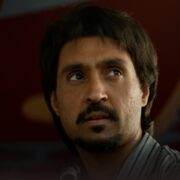BACK TO THE FATHERLAND: A Shallow Glimpse At Deep Topics
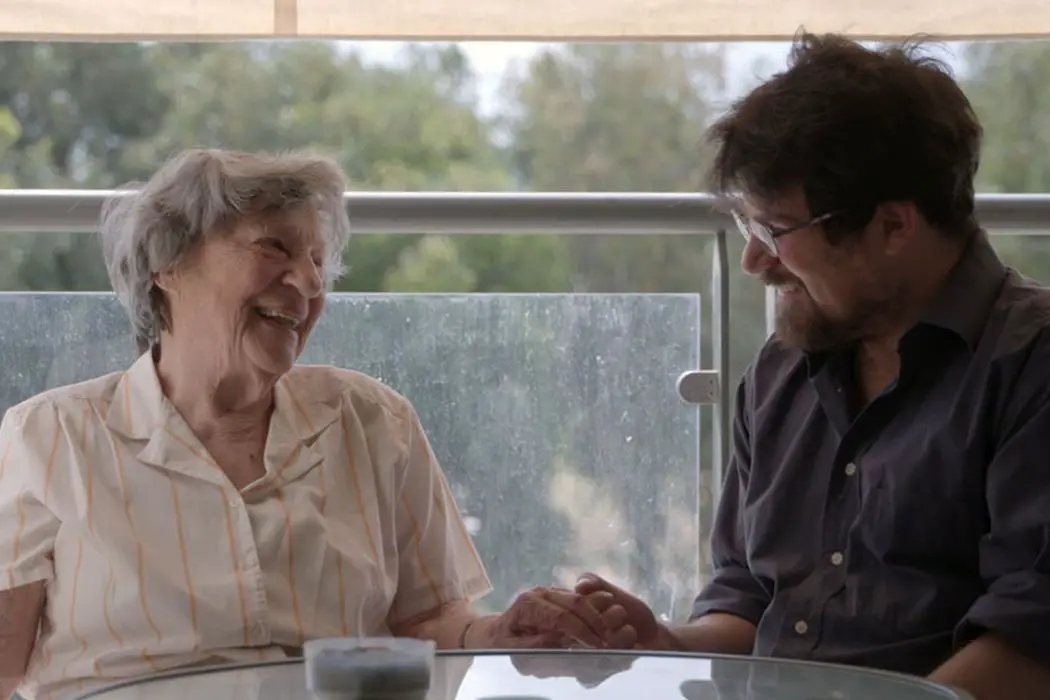
Lee Jutton has directed short films starring a killer toaster,…
Filmmakers Gil Levanon and Kat Rohrer met at college in New York and became lasting friends despite their radically different backgrounds: Levanon is an Israeli whose family suffered during the Holocaust, while Rohrer is an Austrian whose family fought on the side of the Nazis. Their new documentary, Back to the Fatherland, is clearly inspired by these differences; it looks at several young Israelis who have moved to Germany and Austria despite the hardships their families previously faced in those countries. An intriguing concept for a film, to be sure, yet the execution doesn’t quite do it justice.
Time After Time
The film opens with a scene between the two filmmakers themselves, though one only gathers that from the lower thirds identifying them by name; Rohrer and Levanon don’t mention that they are the ones making this film, or explain why they’re doing it, at the start of the film. Levanon asks her grandfather, a Holocaust survivor, how he would feel about his granddaughter moving to Austria. Needless to say, the older man reacts with great distaste. After all, why would any Jew want to leave Israel to go back to the countries that tortured them, killed them, and forced them out?
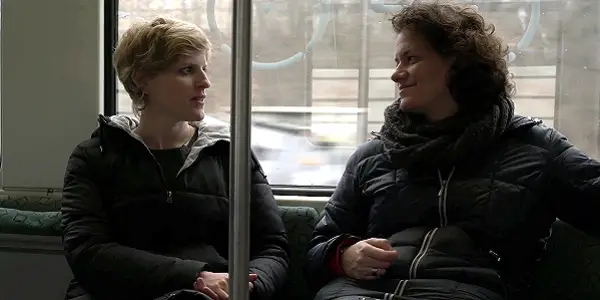
From there, the film goes on to follow two young Israelis who have already done what Levanon has proposed and moved abroad. Guy has settled in Salzburg with an Austrian partner, but he worries that the shifting political attitudes in Europe don’t bode well for him as a Jew. If the far right take over, he fears a rise in antisemitism; if they do not, and more Muslim immigrants enter the country, he fears the same thing. Another young man, Dan, has settled in Berlin due to his distaste with the current political climate in his homeland, describing Israeli attitudes towards Palestinians as apartheid. He seemingly lacks the complicated feelings that Guy has about living in Europe as a Jew, instead thriving on the freedom and diversity of his adopted city.
In the latter part of the film, Guy’s grandfather, Uri, and Dan’s grandmother, Lea, take trips to visit their grandchildren in Europe, a place that neither of them ever thought they would see again. In one powerful scene, Lea is able to witness the installation of a Stolperstein, a brass plate commemorating Jews who were persecuted by the Nazis, in front of her old family home. In another, Uri is struck by a horrifying memory of being arrested by a Nazi officer on a streetcar many years ago as he rides on one today alongside Guy. His eerily detailed description of the terror a Jew could encounter just for wearing the wrong colored jacket on public transportation will leave you stunned.
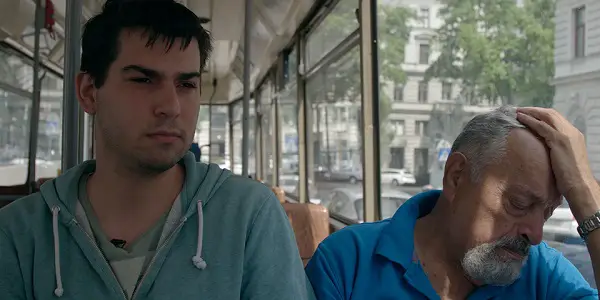
Repeating the Past
And yet, apart from these intense moments of memory scattered throughout the film, Back to the Fatherland feels surprisingly staid. The scenes with Guy and Dan and their families are interspersed with group conversations between Levanon, Rohrer, and a collection of young Israelis of their generation. Like Dan, many of the younger generation fear that what the Nazis did to their families in Europe bears an eerie resemblance to how Israel is treating Palestinians today; one member of the group notes that it feels like the oft-cited “never again” in regards to the atrocities of the Holocaust actually just meant “never again will this happen to us,” the Jewish people.
I wish Back to the Fatherland had delved further into how this statement applies to the Israeli-Palestinian conflict — perhaps even asking the older generation how they felt about such comparisons. But instead, the film only skims the surface. Back to the Fatherland is already inherently courting controversy by virtue of its very subject matter; to not embrace that fully and further explore the historical relevance of the Nazi era to the current political situation in both Israel and Western Europe (for indeed, Israel is not the only nation leaning to the right these days) feels like a letdown.
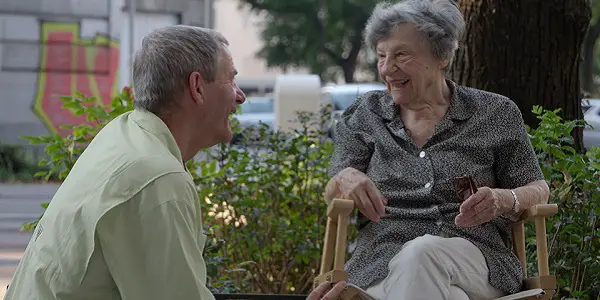
When Rohrer reveals towards the end of the film that her grandfather was a Nazi officer and removes his old uniform from a dusty trunk, one expects serious revelations about the radically different cultural baggage her family carries from the war era, as opposed to that shouldered by Levanon’s family and that of the film’s two main subjects. Yet by leaving this scene until the last ten or so minutes of the film, it once again feels as though the filmmakers chose to skate around a serious topic instead of tackling it head-on.
If Back to the Fatherland had focused solely on Levanon and Rohrer’s families and their radically different journeys through the war, it would have been an entirely different film – and most definitely a more powerful one. Instead, by bouncing around between their own experiences and so many others, it feels as though the two filmmakers tried to say too much about the topics at hand, and in only 77 minutes at that. As a result, Back to the Fatherland ends up not saying much at all.
Back to the Fatherland: Conclusion
The complicated historical and cultural ideas that Back to the Fatherland tackles are worthy of a deep dive, but unfortunately, this film isn’t it. Several individual scenes contain great power, but overall the film lacks the impact that one feels it could have had.
What do you think? Does Back to the Fatherland sound like an intriguing exploration of generational conflict? Share your thoughts in the comments below.
Back to the Fatherland opened in New York on June 14, 2019. It opens in Los Angeles on June 28, 2019. You can find more international release dates here.
Does content like this matter to you?
Become a Member and support film journalism. Unlock access to all of Film Inquiry`s great articles. Join a community of like-minded readers who are passionate about cinema - get access to our private members Network, give back to independent filmmakers, and more.
Lee Jutton has directed short films starring a killer toaster, a killer Christmas tree, and a not-killer leopard. Her writing has appeared in publications such as Film School Rejects, Bitch: A Feminist Response to Pop Culture, Bitch Flicks, TV Fanatic, and Just Press Play. When not watching, making, or writing about films, she can usually be found on Twitter obsessing over soccer, BTS, and her cat.

